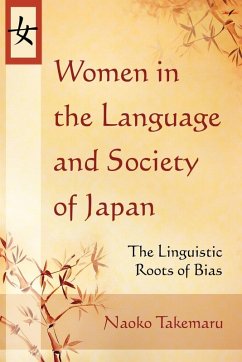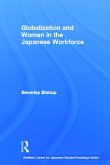Feminist critics have long considered language a primary vehicle for the transmission of sexist values in a society. This much-needed sociolinguistic critique examines the representation of women in traditional Japanese language and society. Derogatory and highly-sexualized terms are placed in historical context, and the progress of nonsexist language reform is reviewed. Central to this work are the individual voices of Japanese women who took part in a survey, expressing their candid thoughts and concerns regarding biased gender representations. In their own words, they give voice to the reality of being female within the constraints of a traditional--and sometimes misogynistic--language.
Hinweis: Dieser Artikel kann nur an eine deutsche Lieferadresse ausgeliefert werden.
Hinweis: Dieser Artikel kann nur an eine deutsche Lieferadresse ausgeliefert werden.








